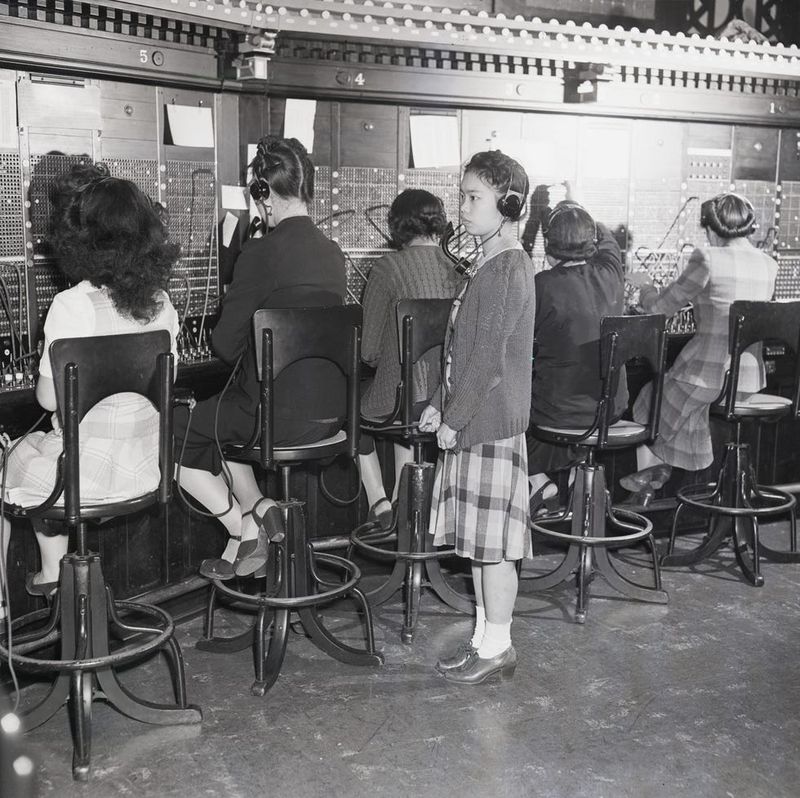Boomers, a generation born between 1946 and 1964, were raised in a world vastly different from today. Their upbringing was shaped by a set of rules and norms that not only defined their childhood but also influenced their perspectives and values. These rules, sometimes strict and sometimes guiding, have had a lasting impact on how Boomers view the world and interact with it. Here are 15 distinct rules that Boomers grew up with, each offering a glimpse into the past and how it molded a generation.
1. Rule 1: Respect Your Elders

“Respect your elders,” a mantra instilled in many Boomers, encouraged deference to age and experience. This rule often translated into unquestioning compliance with adult directives. Such respect for seniority laid the groundwork for a society that valued wisdom and tradition. Boomers learned early on that age brought authority and knowledge, fostering an environment where elders were seen as role models. In families, this respect often meant obedience, sometimes stifling youthful independence. However, it also nurtured a sense of responsibility and community. This rule of respect shaped a generation’s views on authority and communal relationships.
2. Rule 2: Finish Your Plate

“Finish your plate, there are children starving in the world,” was a common refrain for Boomers. This rule was influenced by the post-war scarcity mindset and a desire to avoid waste. It taught Boomers about gratitude and the value of resources. Often, finishing a meal was less about hunger and more about discipline and respect for effort. It instilled a sense of global awareness, albeit limited, and emphasized frugality. This mindset contributed to Boomers’ reputation for being resource-conscious, yet sometimes resistant to change in culinary habits.
3. Rule 3: Be Home Before Dark

Boomers were often told to “be home before dark,” a rule reflecting a time when children roamed neighborhoods freely. This rule fostered independence and social engagement as kids explored their local environments. The setting sun marked the boundary between day-long adventures and familial safety. While it encouraged outdoor play and friendship building, it also set limits on freedom, subtly teaching time management. These experiences created a deep appreciation for community and personal responsibility, traits that many Boomers carry to this day.
4. Rule 4: Mind Your Manners

“Mind your manners,” was not just a suggestion but a rule for many Boomers. Politeness was considered a reflection of one’s upbringing and character, and good manners were drilled into children from a young age. This focus on etiquette helped Boomers navigate social interactions with ease and grace. Whether at the dinner table or in public, proper decorum was expected. Such emphasis on politeness shaped Boomers into a generation noted for their diplomatic and courteous approach to relationships and society.
5. Rule 5: Speak When Spoken To

“Speak when spoken to,” a rule highlighting respect and restraint, was commonly enforced among Boomers. This guideline taught children to be listeners first, valuing the words of others before their own. It underscored hierarchy and decorum, reinforcing respect towards authority figures. This practice sometimes inhibited self-expression but also nurtured keen listening skills. Boomers learned to weigh their words carefully, shaping a generation adept at communication and negotiation. While it could stifle creativity, it also fostered a culture of thoughtful interaction and respect for others’ opinions.
6. Rule 6: Family Dinner is Sacred

For Boomers, family dinners were a sacred tradition, a time for connection and shared experiences. This rule emphasized the importance of family unity and communication, with meals serving as a daily ritual of togetherness. Conversations over dinner allowed for bonding and the transmission of values and traditions. It was a space where children learned from adults, listened to family stories, and shared their own experiences. This practice instilled a sense of family loyalty and continuity, shaping Boomers into a generation that values family ties deeply.
7. Rule 7: Save for a Rainy Day

“Save for a rainy day,” was a principle that stressed financial prudence. Boomers were taught to save money as a safeguard against future uncertainties. This rule encouraged a mindset of preparation and caution, promoting financial discipline from a young age. Boomers learned to balance spending with saving, a practice that contributed to their reputation for thriftiness. This financial foresight became a hallmark of the generation, supporting stability and long-term planning. Such lessons in frugality and foresight were pivotal in shaping their economic outlook.
8. Rule 8: Don’t Talk to Strangers

The rule “don’t talk to strangers” was a measure of safety that Boomers grew up with. It underscored the importance of caution in social interactions, fostering a sense of vigilance. While it taught children to be wary of potential dangers, it also came with a downside of fostering suspicion. This rule highlighted the balance between safety and social openness, shaping Boomers into cautious yet socially aware individuals. It reinforced the importance of community trust while nurturing an awareness of personal boundaries and protection.
9. Rule 9: Hard Work Pays Off

Boomers were ingrained with the belief that “hard work pays off.” This principle emphasized dedication and perseverance, instilling a strong work ethic in a generation. Boomers learned to value effort and resilience, often taking on chores or part-time jobs to earn rewards. This mindset led to a strong sense of personal responsibility and achievement, shaping a generation known for their commitment to career and family. This rule underscored the link between effort and success, fostering ambition and tenacity in personal and professional pursuits.
10. Rule 10: Stand Up for What’s Right

The rule to “stand up for what’s right” injected a sense of moral responsibility into Boomers. Witnessing historical movements for equality, they learned that silence could equate to complicity. Many Boomers grew up with a deep-seated sense of justice, encouraged to speak against wrongs and support fairness. This rule nurtured a generation that values integrity and activism, often participating in or supporting social causes. The emphasis on justice and equality left a lasting impact, helping mold Boomers into advocates for change.
11. Rule 11: Education is Key

“Education is key” was a principle that prioritized learning as a pathway to success. Boomers were often reminded of the importance of schooling as a means to a prosperous future. This focus on education instilled a sense of ambition and the belief in meritocracy. Boomers pursued academic and professional achievements with vigor, shaping a generation that values knowledge and credentials. This emphasis on education led to a societal shift towards higher education and professional development, influencing subsequent generations as well.
12. Rule 12: Cleanliness is Next to Godliness

The adage “cleanliness is next to godliness” highlighted the importance of personal and environmental hygiene. Boomers were raised to maintain cleanliness as a reflection of discipline and self-respect. This rule instilled habits of tidiness and order, often extending to their personal and professional lives. For Boomers, cleanliness was synonymous with respectability and moral integrity. This value shaped their approach to living spaces and self-presentation, making it a significant aspect of their identity. The emphasis on cleanliness contributed to Boomers’ reputation for orderliness and propriety.
13. Rule 13: Listen to Your Conscience

Listening to one’s conscience was a guiding principle for many Boomers, emphasizing moral introspection. This rule encouraged Boomers to align actions with personal ethics, fostering a sense of integrity. It taught the importance of inner reflection and self-awareness in decision-making. Boomers were encouraged to evaluate right from wrong, nurturing a strong moral compass. This attention to conscience contributed to a generation noted for their principled stances and ethical considerations, impacting personal integrity and societal values.
14. Rule 14: Patience is a Virtue

“Patience is a virtue” was a lesson in restraint and tolerance for Boomers. This rule taught the value of waiting and enduring delays with grace. Boomers learned that good things often take time, fostering persistence and calmness in the face of adversity. This principle shaped their approach to problem-solving and interpersonal relationships, emphasizing the importance of patience in achieving goals and maintaining harmony. The virtue of patience became a defining characteristic, influencing Boomers’ ability to navigate life’s complexities with composure.
15. Rule 15: Be Grateful for What You Have

Being grateful for what one has was a cornerstone of Boomer upbringing. This rule instilled a mindset of appreciation and humility, teaching Boomers to value their blessings. Gratitude became a way to foster contentment and resist the lure of materialism. This principle encouraged a focus on the positives in life, nurturing a sense of fulfillment and joy. Boomers developed a reputation for their down-to-earth nature, often attributing happiness to simple pleasures and familial connections. The emphasis on gratitude helped shape a generation grounded in appreciation and mindfulness.

